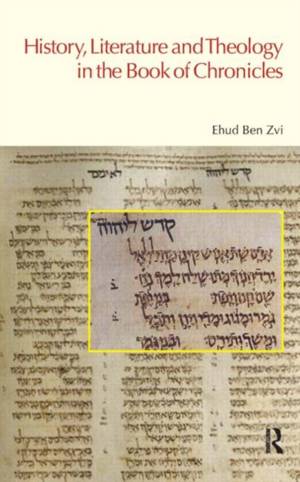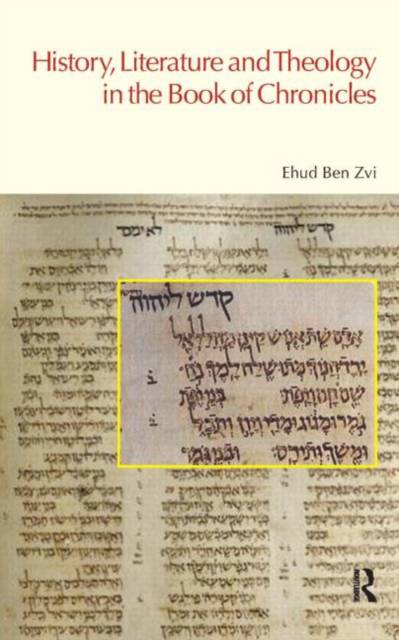
- Retrait gratuit dans votre magasin Club
- 7.000.000 titres dans notre catalogue
- Payer en toute sécurité
- Toujours un magasin près de chez vous
- Retrait gratuit dans votre magasin Club
- 7.000.0000 titres dans notre catalogue
- Payer en toute sécurité
- Toujours un magasin près de chez vous
Description
History, Literature and Theology in the Book of Chronicles presents a new way of approaching this key biblical text, arguing that the Book employs both multiple viewpoints and the knowledge of the past held by its intended readership to reshape social memory and reinforce the authority of God. The Book of Chronicles communicates to its intended readership a theological worldview built around multiple, partial perspectives which inform and balance each other. This is a worldview which emphasizes the limitations of all human knowledge, even of theologically "proper" knowledge. When Chronicles presents the past as explainable it also affirms that those who inhabited it could not predict the future. And, despite expanding an "explainable" past, the Book deliberately frames some of YHWH's actions - crucial events in Israel's social memory - as unexplainable in human terms. The Book serves to rationalise divinely ordained, prescriptive behaviour through its emphasis on the impossibility of adequate human understanding of a past, present and future governed by YHWH.
Spécifications
Parties prenantes
- Auteur(s) :
- Editeur:
Contenu
- Nombre de pages :
- 328
- Langue:
- Anglais
- Collection :
Caractéristiques
- EAN:
- 9781845530716
- Date de parution :
- 01-02-07
- Format:
- Livre broché
- Format numérique:
- Trade paperback (VS)
- Dimensions :
- 164 mm x 235 mm
- Poids :
- 480 g

Les avis
Nous publions uniquement les avis qui respectent les conditions requises. Consultez nos conditions pour les avis.






